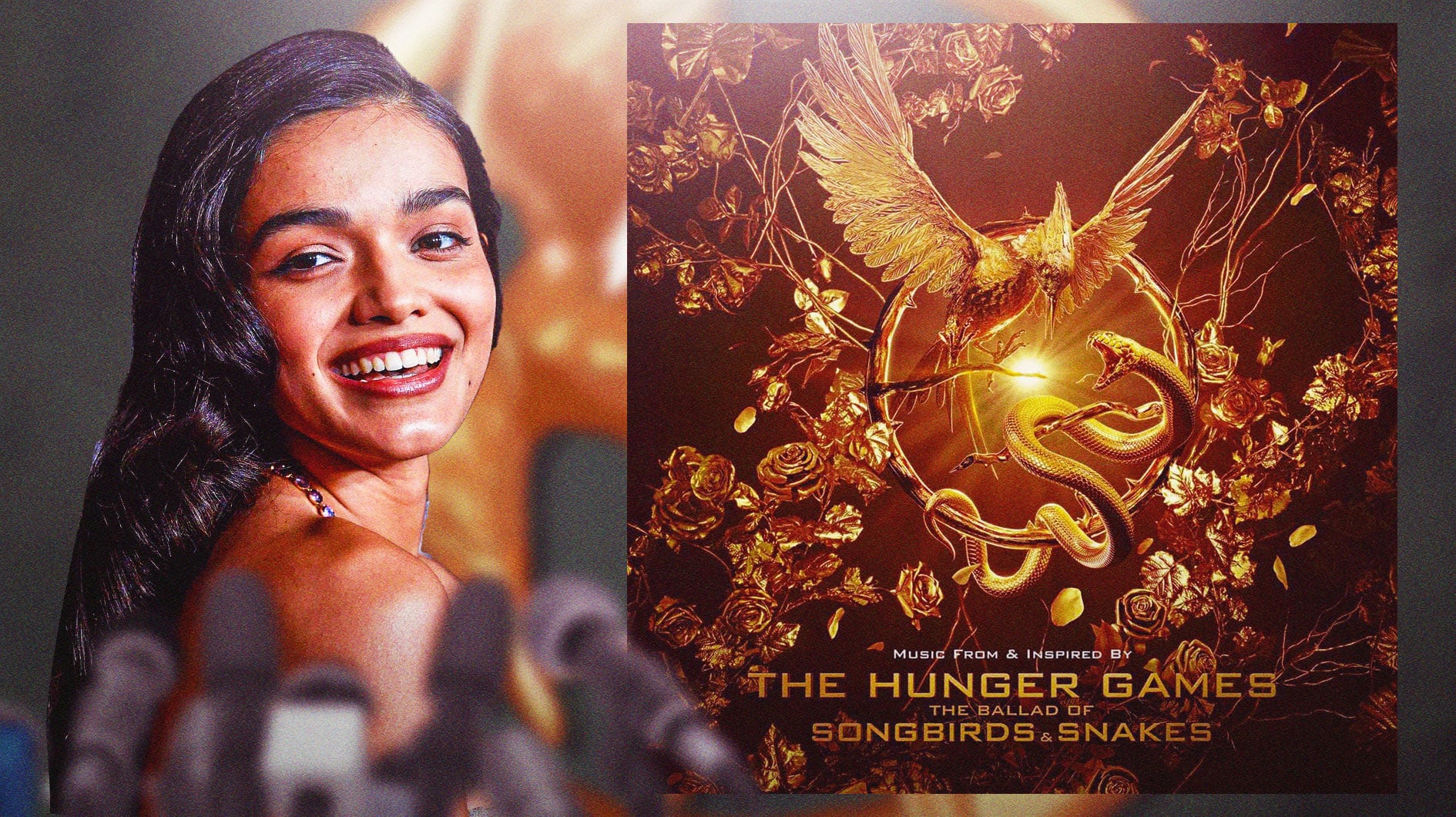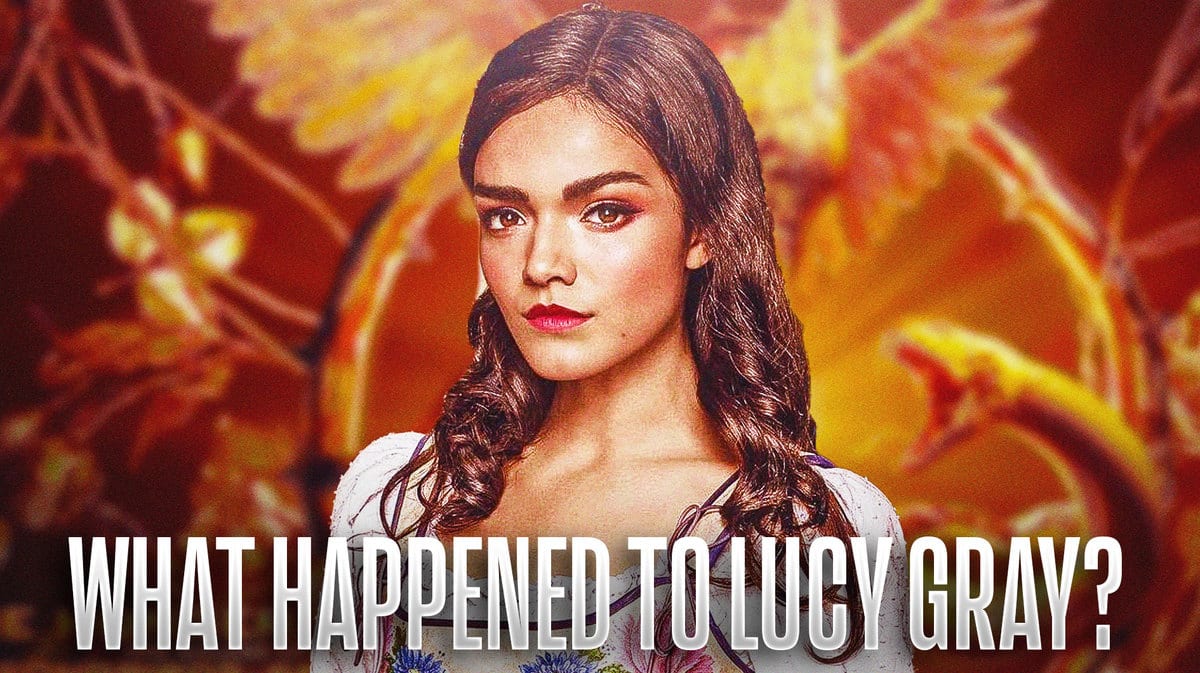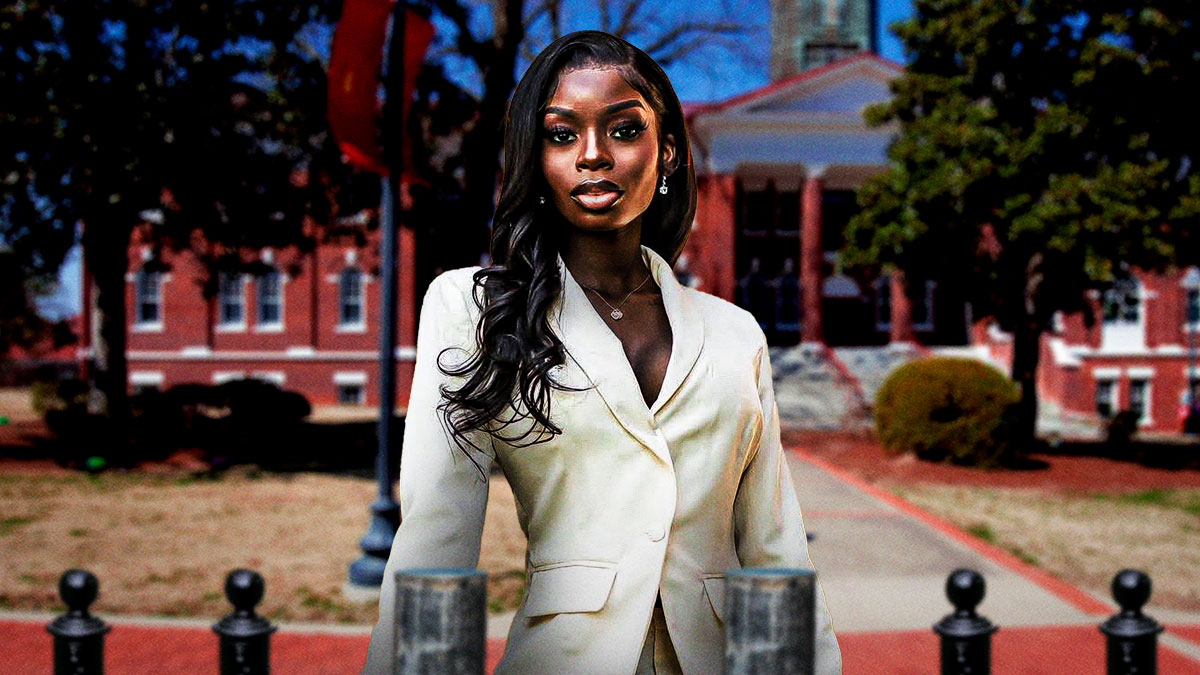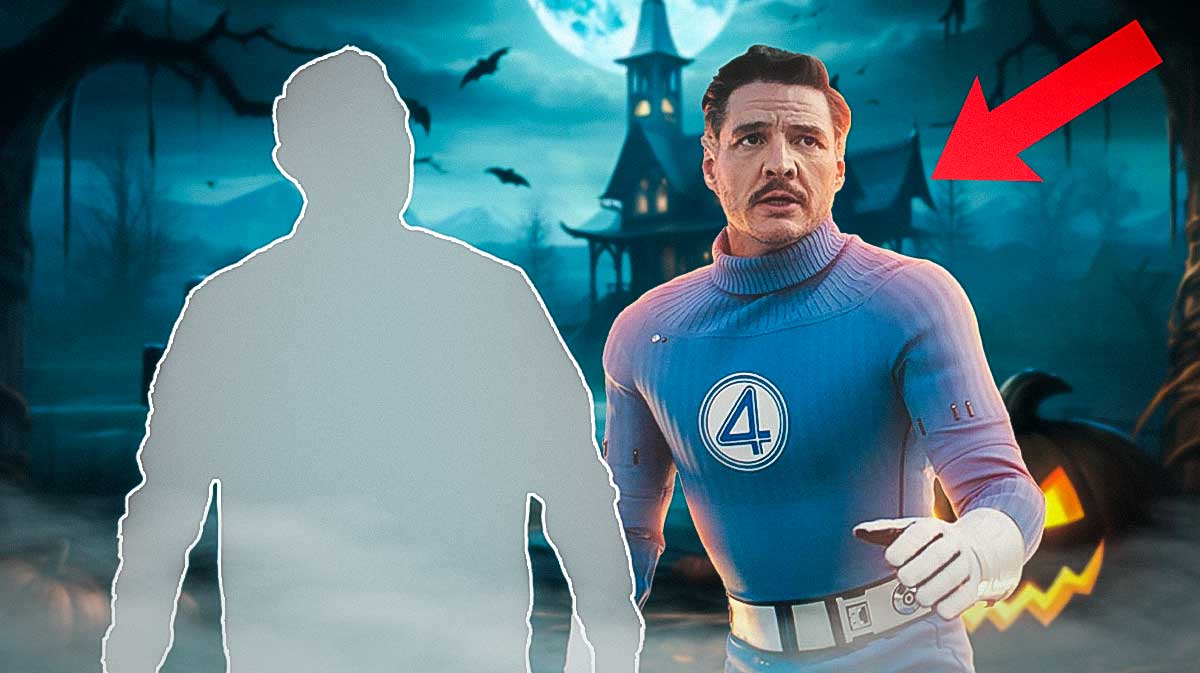Lucy Gray's (Rachel Zegler) fate at the end of The Hunger Games: The Ballad of Songbirds & Snakes was left to the imagination of both readers and cinemagoers.
In The Ballad of Songbirds & Snakes, the District 12's female tribute helped shape the young Coriolanus Snow (Tom Blyth). While surviving the Capitol's games, she is granted a semblance of freedom with the Coveys. But things take a twist in the final acts of Snow's story.
Now, this prequel spilled the beans on the girl hinted at in the original trilogy as District 12's first victor. However, Lucy Gray and the 10th Hunger Games got wiped from history, leaving her unnamed. So what really happened to Lucy Gray Baird?
Lucy Gray's fate in The Ballad of Songbirds & Snakes film

The film intentionally leaves Lucy Gray's fate vague, inviting viewers to interpret the events. During a rainstorm, Lucy attempts to leave Snow after discovering his role in Sejanus Plinth's death. A confrontation in the forest ensues, with Snow shooting at Lucy after being bitten by a snake. Although the film depicts Lucy falling and yelling, her body is conspicuously absent when Snow reaches the presumed location.
Even her tracks disappear, leaving the audience in suspense. Snow hears Lucy Gray singing “The Hanging Tree,” adding to the ambiguity of the scene.
Ultimately—the question of Lucy Gray's survival or demise remains unanswered in the film. Casca Highbottom hints at her disappearance, sparking speculation that District 12's mayor may have played a sinister role.g
Interestingly, the film also echoes Lucy's song, emphasizing her survival skills. But leaving us to wonder still.
Lucy Gray's fate in The Ballad of Songbirds & Snakes book
Suzanne Collins' novel takes us deeper into President Snow's teen years, mixing it up with Lucy Gray Baird's drama.
Like the film, Snow mentors in the Hunger Games. He got close to Lucy and set off a tragedy in District 12. Lucy goes on the run with Snow after her in a cabin near the lake. Snow, paranoid and haunted by guilt, returns to the military base without confirming Lucy Gray's fate.
Similar to the prequel film, there was no mention of the District 12 tribute again. However, it did have implications for the Hunger Games franchise.
Lucy Gray's significance extends beyond her fate because of her ties to Katniss Everdeen‘s story. With parallels in their roles as District 12 victors. If recalled, Lucy named a plant ‘Katniss' and wrote the ‘The Hanging Tree' which Katniss later on sang during the uprising.
Alive or not, Lucy's had a major influence on Snow both in his upbringing and his downfall. In between, Lucy also shaped his interactions with Katniss. Like how he never called her ‘Katniss,' just ‘Miss Everdeen.'
From Suzanne Collins' narrative
The last thing to get answers from came from the writer herself. In an interview with Scholastic, Suzanne Collins emphasizes Lucy Gray's enduring influence on the series. Despite not being named in the original Hunger Games trilogy, Lucy contributed largely to entertainment and her musical legacy. With the ‘The Hanging Tree” and “Deep in the Meadow.”
“Lucy Gray lives on in a significant way through her music, helping to bring down Snow in the trilogy. Imagine his reaction when Katniss starts singing “Deep in the Meadow” to Rue in the arena,” she said.
The Hunger Games: The Ballad of Songbirds & Snakes is in theaters.



















